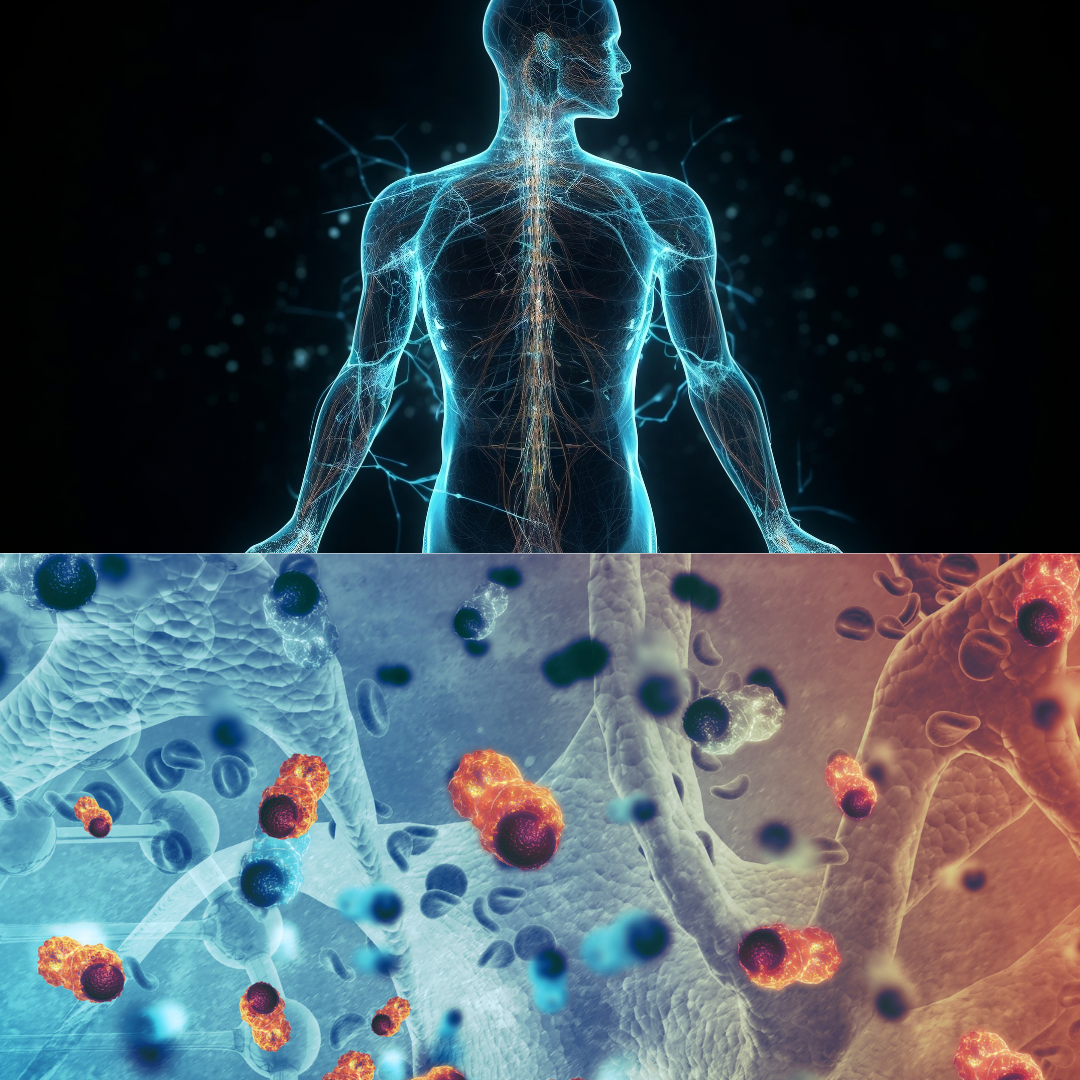Jesus hands us a big aspiration today: that we might become one as He and the Father are one. He also desires for us to be one with Him. I recently studied Ephesians with my son, and we were discussing the image of Christ as the head of the body and us as the parts. My son responded with: “We are like the cells.” I had never heard that description before, but it seems fitting to share today.
Our bodies are made up of roughly 30 trillion cells, varying due to a number of factors such as age and weight. When you look at a body, you don’t see 30 trillion cells, you see one body. Jesus is asking us to become one – to work together, to serve our purpose, to understand we are not alone and that together we can form something amazing: His body, the Body of Christ. Cells can be distinguished from one another, but are designed to be a part of something bigger.
Bacteria, on the other hand, is a unicellular organism. It is a singular cell, and it can drain a body’s cells of energy and healthy function. Satan is the bacteria in the Body of Christ. He tries to get you to follow him, to isolate yourself, lose function, and lack nutrients. The “healthier” we are, the more resistant we will be to Satan.
Science books call cells building blocks. We are called to build the Kingdom of God here on earth. You and I, we each have a part in this building up of the Body of Christ. When people see us, they should see Jesus. When we realize that our actions, prayers, and thanksgiving become His, we can understand that through Him we have become one with the Father through the Holy Spirit.
As the cells of Jesus, people should not be able to see us without seeing Him. Jesus as the head then speaks for us, hears for us, and thinks for us. We must rely on Him. We also must value each other. Our collective unity in the Body of Christ is what makes us strong. Jesus’ oneness with the Father enables Him to heal and perform miracles beyond our comprehension. Jesus cannot be Who He is without the Father.
Similarly, we cannot be who we are as the Body of Christ without Jesus. He is the key to us reaching the glory of heaven. God the Father gives us a place in the Body of Christ. As part of this Body, we participate in the oneness of the Father and the Son. Our unity with Christ is important to how we build the Body of Christ on earth. Let’s make sure we are nourishing ourselves with the Eucharist and the Word, so that all who meet us will come to know Jesus.
Jesús nos da hoy una gran aspiración: que seamos uno como Él y el Padre son uno. También desea que seamos uno con Él. Hace poco estudié Efesios con mi hijo y estábamos hablando de la imagen de Cristo como la cabeza del cuerpo y de nosotros como las partes. Mi hijo respondió: “Somos como las células”. Nunca había escuchado esa descripción, pero me parece apropiado compartirla hoy.
Nuestros cuerpos están compuestos por aproximadamente 30 billones de células, que varían debido a una serie de factores como la edad y el peso. Cuando miras un cuerpo, no ves 30 billones de células, ves un solo cuerpo. Jesús nos pide que nos volvamos uno, que trabajemos juntos, que cumplamos nuestro propósito, que entendamos que no estamos solos y que juntos podemos formar algo asombroso: Su cuerpo, el Cuerpo de Cristo. Las células se pueden distinguir entre sí, pero están diseñadas para ser parte de algo más grande.
Las bacterias, por otro lado, son organismos unicelulares. Es una célula singular, y puede drenar la energía y el funcionamiento saludable de las células del cuerpo. Satanás es la bacteria en el Cuerpo de Cristo. Intenta que lo sigas, que te aísles, que pierdas funciones y que te falten nutrientes. Cuanto más “saludables” seamos, más resistentes seremos a Satanás.
Los libros de ciencia llaman a las células los bloques de construcción. Estamos llamados a construir el Reino de Dios aquí en la tierra. Tú y yo, cada uno de nosotros tenemos una parte en esta construcción del Cuerpo de Cristo. Cuando la gente nos ve, debería ver a Jesús. Cuando nos damos cuenta de que nuestras acciones, oraciones y agradecimientos se convierten en Suyos, podemos entender que a través de Él nos hemos hecho uno con el Padre a través del Espíritu Santo.
Como células de Jesús, la gente no debería poder vernos sin verlo a Él. Jesús, como cabeza, habla por nosotros, escucha por nosotros y piensa por nosotros. Debemos confiar en Él. También debemos valorarnos unos a otros. Nuestra unidad colectiva en el Cuerpo de Cristo es lo que nos hace fuertes. La unidad de Jesús con el Padre le permite sanar y realizar milagros que van más allá de nuestra comprensión. Jesús no puede ser quien es sin el Padre.
De la misma manera, nosotros no podemos ser quienes somos como Cuerpo de Cristo sin Jesús. Él es la clave para que alcancemos la gloria del cielo. Dios Padre nos da un lugar en el Cuerpo de Cristo. Como parte de este Cuerpo, participamos en la unidad del Padre y el Hijo. Nuestra unidad con Cristo es importante para la manera en que construimos el Cuerpo de Cristo en la tierra. Asegurémonos de nutrirnos con la Eucaristía y la Palabra, para que todos los que nos conozcan lleguen a conocer a Jesús.
 Nicole Berlucchi is a faith and family blogger (www.nicoleberlucchi.com) and Catholic blog contributor. She has worked in a number of roles in the nonprofit world, but helping people realize their vision and make an impact, seems to be her sweet spot. Nicole owns Coley B. Creative, LLC, a marketing company providing support to small businesses. She is also the author Magnify Love: Unlocking the Heart of Jesus in Your Marriage and Your Life. A native of Philadelphia, she now resides in the Nashville area with her husband, Joe, and their four children. She’s a big fan of brilliant skies, salted caramel with chocolate, books and more books. She loves sharing her journey with Jesus so that others might: Come and see.
Nicole Berlucchi is a faith and family blogger (www.nicoleberlucchi.com) and Catholic blog contributor. She has worked in a number of roles in the nonprofit world, but helping people realize their vision and make an impact, seems to be her sweet spot. Nicole owns Coley B. Creative, LLC, a marketing company providing support to small businesses. She is also the author Magnify Love: Unlocking the Heart of Jesus in Your Marriage and Your Life. A native of Philadelphia, she now resides in the Nashville area with her husband, Joe, and their four children. She’s a big fan of brilliant skies, salted caramel with chocolate, books and more books. She loves sharing her journey with Jesus so that others might: Come and see.
Feature Image Credit: Designed by author on Canva
The views and opinions expressed in the Inspiration Daily blog are solely those of the original authors and contributors. These views and opinions do not necessarily represent those of Diocesan, the Diocesan staff, or other contributors to this blog.

